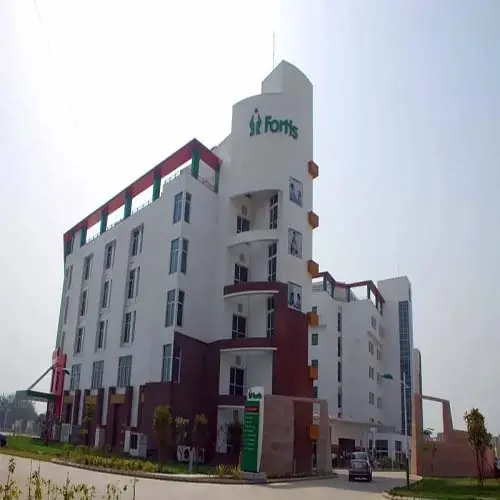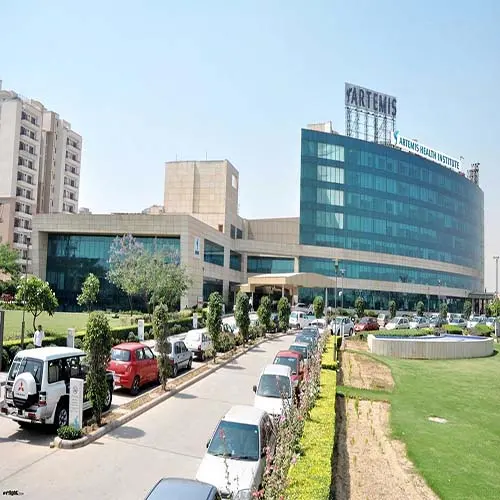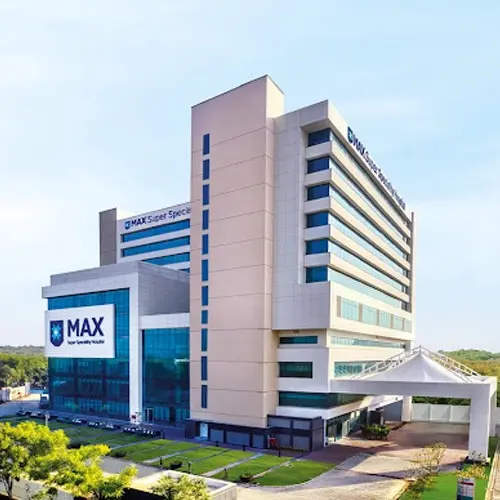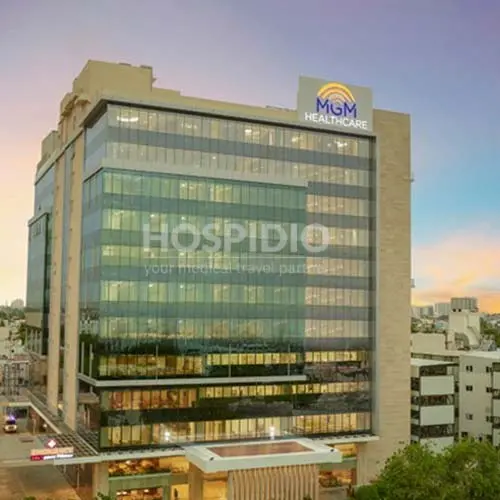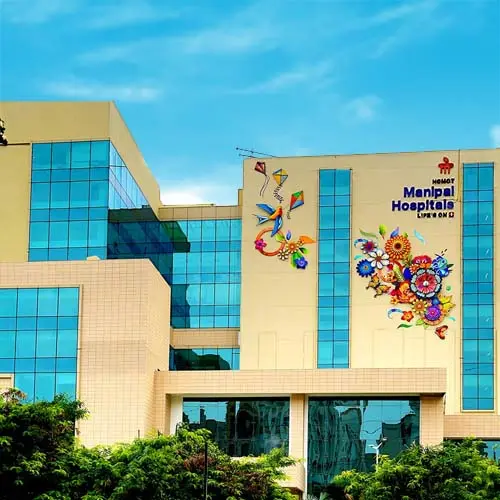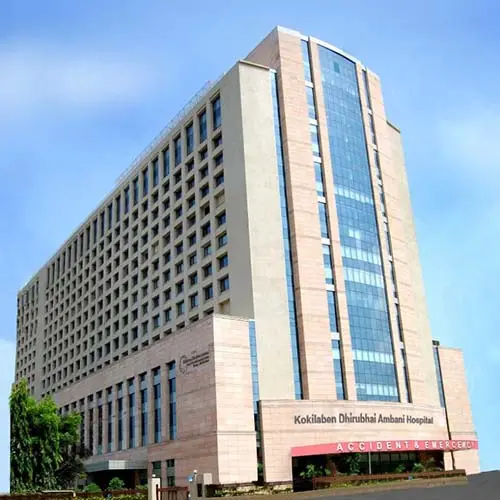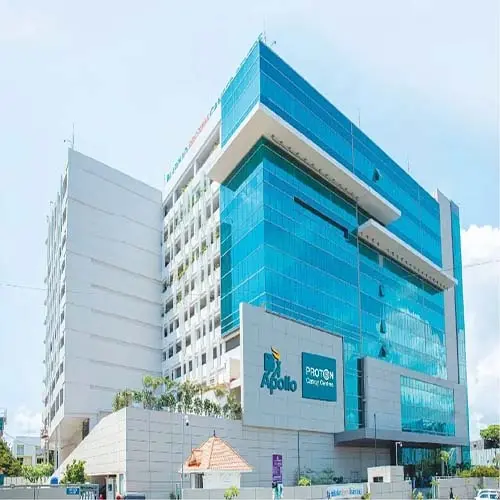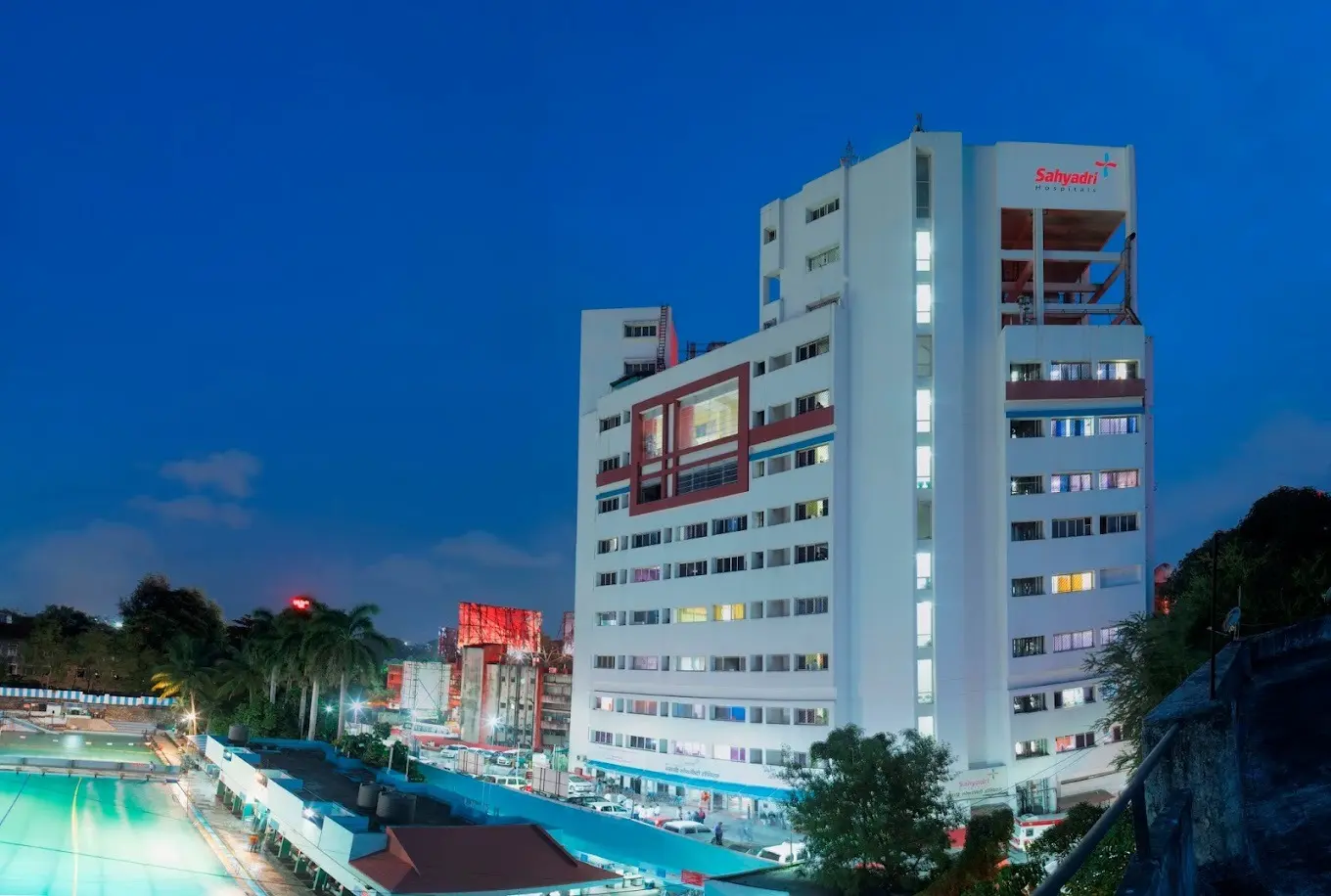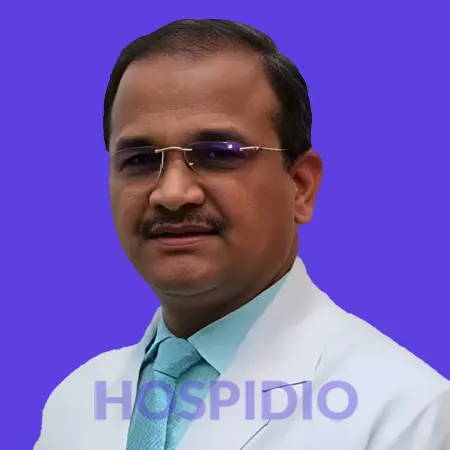Kaposi Sarcoma Treatment cost in India
The cost of Kaposi sarcoma treatment in India typically ranges from $3,000 to $7,000, which is equivalent to approximately 2,55,000 to 5,95,000 Indian rupees. The overall cost depends on the stage of the disease, the organs involved, and the type of treatment required. This may include a combination of antiretroviral therapy (if HIV-positive), chemotherapy, radiotherapy, and supportive care.
India is known for offering advanced cancer care at significantly lower prices compared to Western countries while maintaining international standards of treatment. Top oncology centres in India provide access to specialised oncologists, modern diagnostic tools, and customised treatment plans, making India a preferred destination for affordable and quality Kaposi sarcoma care.
Cost Range of Kaposi Sarcoma Treatment cost in India
Kaposi sarcoma is a rare type of cancer that causes abnormal growth of blood vessels, usually appearing as purple, red, or brown patches or lumps on the skin, mouth, or internal organs. It is most commonly seen in people with weakened immune systems, especially those living with HIV/AIDS. The condition may stay limited to the skin or spread to the lungs, liver, digestive system, or lymph nodes. While it can look serious,
Kaposi sarcoma is treatable, especially when detected early. Treatment often includes antiretroviral therapy (ART), chemotherapy, radiation, or a combination—depending on how advanced the disease is and the person's overall health.
With proper medical care, many patients are able to control the disease and improve their quality of life.
Get a free cost estimate
Types of Kaposi Sarcoma
There are several types of Kaposi sarcoma, as highlighted in the table below:
| Type of Sarcoma | Description | Who it Affects? |
| Epidemic Kaposi Sarcoma | Most common form today, linked to HIV/AIDS. It develops due to weakened immunity and is treatable with ART and chemotherapy. | People living with HIV/AIDS |
| Classic Kaposi Sarcoma | A slower-growing form that affects the skin, especially on the legs. Progresses gradually and may not need immediate treatment. | Older men, especially of Mediterranean or Eastern European descent |
| Endemic (African) Kaposi Sarcoma | Found in parts of sub-Saharan Africa, often more aggressive and may affect children and adults. | People in Central and East Africa |
| Iatrogenic (Transplant-related) Kaposi Sarcoma | Occurs in people who have received organ transplants and are on long-term immunosuppressive medications. | Organ transplant recipients |
| Pulmonary/Gastrointestinal Kaposi Sarcoma | A more advanced form where lesions spread to lungs, digestive tract, or other internal organs. Requires active treatment. | Can occur in any type if left untreated |
Who Is an Eligible Candidate for Kaposi Sarcoma Treatment in India?
1. Medical Eligibility Criteria
a) Confirmed Diagnosis of Kaposi Sarcoma
Treatment is recommended for individuals who have been diagnosed with Kaposi sarcoma through biopsy, skin examination, or imaging. Diagnosis may include HIV testing since Kaposi sarcoma is often linked to a weakened immune system.
b) Type and Stage of Disease
- HIV-associated (epidemic) Kaposi Sarcoma: Often seen in people with HIV/AIDS.
- Classic Kaposi Sarcoma: Typically affects older adults.
- Endemic or transplant-related Kaposi Sarcoma: Seen in some African regions or in patients with organ transplants.
Treatment decisions depend on where the lesions are (skin, lungs, GI tract) and how advanced the disease is.
2. Additional Considerations
Overall Health
Patients must be evaluated for immune system function, organ health, and other existing conditions before starting treatment such as chemotherapy or radiation.
HIV Status and Viral Load (if applicable)
Patients with HIV should begin or continue antiretroviral therapy (ART) to help strengthen the immune system and improve treatment outcomes.
Ability to Follow Through with Therapy
Since Kaposi sarcoma may require multiple cycles of chemotherapy or radiation, patients and caregivers must be prepared for ongoing care and follow-up.
Types of Kaposi Sarcoma Treatment in India
| Type of Treatment | Description | Approximate Cost in USD |
| Antiretroviral Therapy (ART) | Used when Kaposi Sarcoma is linked to HIV. ART helps control the virus and can shrink or stop lesions. | 500 to 700 per year |
| Chemotherapy | Given intravenously or orally to shrink tumors in moderate to advanced cases. | 300 to 500 per cycle |
| Radiation Therapy | Used for local lesion control, especially in the skin, mouth, or face. | 4500 to 5500 for 30 sessions |
| Surgical Excision | Small or isolated skin lesions may be removed surgically for cosmetic or medical reasons. | 3000 to 5000 |
| Immunotherapy (in select cases) | Drugs like interferon-alpha are used to boost immune response against the tumor (less common now). | 2500 to 3000 per cycle |
Get a free cost estimate
Kaposi Sarcoma Treatment Cost in India Inclusions
- First consultation Treatment as advised
- Routine drugs and consumables required during hospitalization
- Pre-anesthesia check up and clearance
- Hospital stay and meals as per the package
Kaposi Sarcoma Treatment Cost in India Exclusions
- Pre-operative examination and tests
- Hotel stay, meals and flights
- Extended hospital stay
- Post-treatment follow-ups
- Treatment for any other underlying medical conditions
- Any complex investigations or drugs
Other Factors Affecting Kaposi Sarcoma Treatment Cost in India
- Type and extent of excision advised
- Choice of location, doctor, and hospital
- Pre-existing medical history
- Type and duration of treatment advised
Types of Tests Required Before Kaposi Sarcoma Treatment
| Category | Brief Description | Common Tests and Cost in USD |
| Physical Examination | To assess the number, size, and location of skin or mucosal lesions. | Full-body skin and oral examination by an oncologist or dermatologist. Costs about 30 to 50 USD. |
| Biopsy and Histopathology | Confirms the diagnosis by examining tissue under a microscope. | Skin lesion biopsy, lymph node biopsy (if swollen), histopathological confirmation of Kaposi Sarcoma cells. Costs about 200 to 300 USD. |
| HIV Testing | Kaposi's sarcoma is often linked to HIV. Testing is crucial to plan appropriate treatment. | HIV antibody test, CD4 count, HIV viral load. Costs about 40 to 50 USD. |
| Imaging Tests | To check if the cancer has spread to internal organs like lungs, liver, or intestines. | Chest X-ray, CT scan of chest/abdomen, PET scan (if needed), ultrasound (if abdominal lesions are suspected). Costs about 400 to 500 USD. |
| Blood Tests | To evaluate overall health and prepare for chemotherapy or ART. | CBC, liver function test, kidney function test, blood glucose, electrolytes. Costs about 80 USD. |
| Pre-Anesthesia Checkup | Required if surgery or invasive biopsy is planned. | ECG, chest X-ray, coagulation profile, general fitness check. Costs about 100 to 120 USD. |
Why is India Preferred as One of the Best Countries for Kaposi Sarcoma Treatment?
India is increasingly chosen by patients worldwide for Kaposi sarcoma treatment due to its advanced cancer care, experienced oncologists, and affordable costs. Indian hospitals offer comprehensive treatment that includes antiretroviral therapy (ART), chemotherapy, radiation therapy, and palliative care, all under one roof. The total cost in India ranged HIV care alongside cancer treatment, which is essential for managing Kaposi Sarcoma effectively.
In addition, India provides medical visa support, affordable accommodation, and language assistance, making it a safe and patient-friendly destination for cancer care. The cost of care and management of Kaposi sarcoma in India is much lower than in countries like the USA or UK, where the same treatment can cost $40,000 to $80,000+. Despite lower pricing, Indian cancer centres maintain international standards in diagnosis, safety, and clinical outcomes. Top hospitals such as Manipal, Apollo, Max Healthcare, Fortis, and Kokilaben Dhirubhai Ambani Hospital are equipped with modern oncology units, expert doctors, and personalised care teams. For HIV-positive patients, India also offers integrate
Best Hospitals for Kaposi Sarcoma Treatment in India
Best Doctors in India for Kaposi Sarcoma Treatment
FAQs
While there is no guaranteed cure, Kaposi Sarcoma can be controlled with proper treatment, especially if started early.
It depends on the stage and location of the cancer. Some patients need weeks to months of therapy, followed by regular checkups.
Yes, especially if the immune system stays weak. Ongoing treatment and monitoring are important to manage relapse.
Yes. Besides the skin, Kaposi sarcoma can affect the lungs, liver, digestive tract, and lymph nodes, leading to symptoms like shortness of breath, stomach pain, or swelling.
In many cases, skin lesions shrink or disappear with treatment. Some mild scarring or discolouration may remain, but this can often be managed cosmetically.
Kaposi sarcoma is highly treatable in India, especially when linked to HIV and managed early. Treatment success is high when ART and chemotherapy are started in time and followed consistently.
Yes, but it is rare in children. It may occur in children with congenital immune deficiency or in regions with endemic Kaposi sarcoma (such as some parts of Africa).
Yes. Many people go on to live healthy, active lives, especially if they maintain a strong immune system and follow up regularly with their healthcare team.

